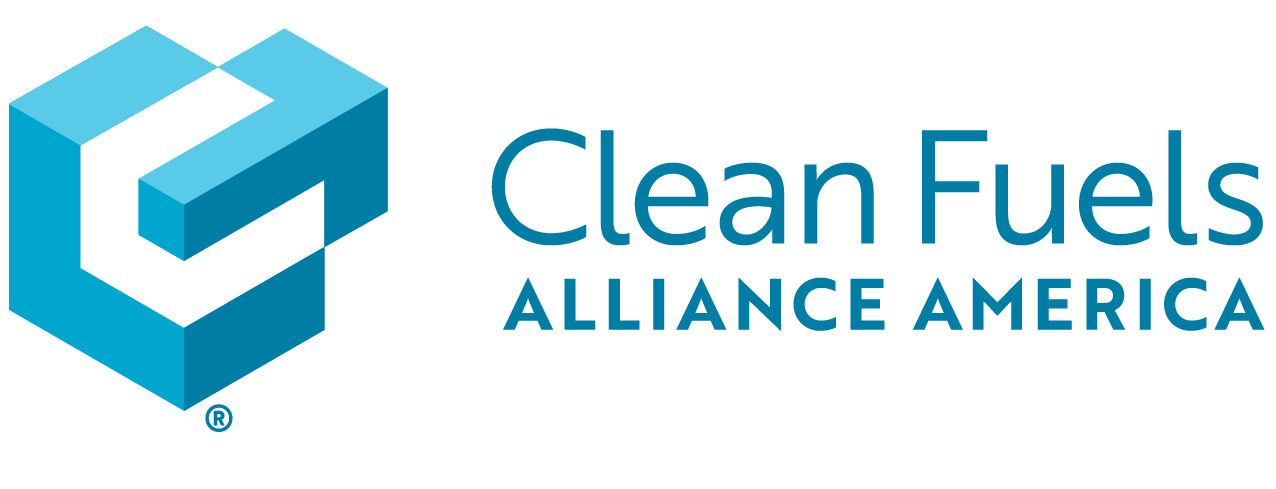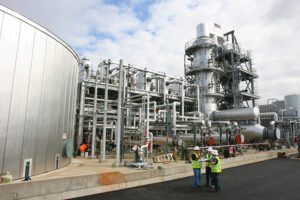By Antoine M. Thompson & Ron Heck
November 07, 2022
On the surface, people may think the two of us authoring this piece wouldn’t see eye to eye. One of us is a former politician from upstate New York who is now a policy advocate in Washington, D.C. And one of us is a fourth-generation farmer from Perry, Iowa, farming the same land my grandfather once did now with the help of my grandson. One wears a suit and tie to cultivate policy, while the other puts on blue jeans daily to produce crops.

No matter our different walks of life, we know our time is better spent when we share in what unites us. That’s why we want to share the many benefits of the clean fuels industry, which produces biodiesel, renewable diesel and sustainable aviation fuel. These fuels are renewable and cleaner than traditional fossil fuels, benefiting everyone from farmers in the heartland to city dwellers on the coasts.
Yes, it’s a complex industry and can be confusing when misrepresented. But clarity and accuracy are key when it comes to clean fuels, which are essential to our farmers, our communities, our economy, our country, and our planet.
Biodiesel, renewable diesel and sustainable aviation fuel are made from renewable feedstocks like soybeans, used cooking oil from restaurants, and other sources – and they are cleaner than other fuels. Unlike traditional diesel that relies on petroleum, clean fuels utilize feedstocks that can be grown and regrown over and over again. Growing plants use solar energy to remove carbon dioxide from the air and convert it to oxygen, food, fiber and fuel.
Consider these benefits:
- Clean fuels are good for our farmers and for our economy. Today, clean fuels producers are supplying more than 3.2 billion gallons of cleaner, better fuels to the U.S. market, and the industry is aiming for 6 billion gallons by 2030. This predictable and growing clean fuels market gives farmers the confidence they need to invest in their businesses and make planting decisions. Further, clean fuels are essential to keeping food and other consumer items moving across the country and actually contribute to lower fuel prices. According to a recent study by World Agricultural Economic and Environmental Services, clean fuels can save up to 4% on the price of diesel fuel. Further, in 2021, while the petroleum and coal industries lost jobs at a rate of 6.4% and 11.8%, respectively, the biofuels sector grew jobs at a rate of 6.7%, according to the U.S. Department of Energy, and jobs growth this year is predicted to be 5.8% in the biofuels sector.
- Clean fuels are good for our communities and our planet. Today’s clean fuels are delivering positive health benefits in our urban communities. We know the pollution of air, land and water often shorten life expectancy in under-served communities, including in Washington, D.C., and if we are committed to addressing environmental inequities, we should embrace the use of clean fuels. A recent study found that replacing diesel fuel with biodiesel in cities like Washington, D.C., could reduce the symptoms of asthma (such as needing to use an inhaler) by nearly 13,000 incidents per year. It also found that the annual amount of lost workdays due to pollution-related illness could be reduced by almost 5,700 days, representing close to $1.5 million in economic activity. Overall, the economic benefit of improved health in the Washington, D.C. area would total over $262 million each year. For our planet, using biodiesel or renewable diesel instead of petroleum-based fuels reduces greenhouse gas emissions by more than 70% on average.
- Clean fuels are good for our country. The volatility of the crude oil market can create challenges for U.S. consumers, particularly given the recent decision to cut production by 2 million barrels of oil per day, which is expected to lead to higher gas prices. Additionally, the war in Ukraine is adding to the volatility of the crude oil market. This can affect the United States considering 8% of our crude oil came from Russia in 2021. However, homegrown clean fuels can help us offset the challenges caused by this volatility.
So, yes, clean fuels are a crucial part of our country’s overall energy mix. While there is still work to be done and a lot of innovation yet to come, we understand that the clean fuels industry is an important part of the challenge before us: Powering our lives in ways that are environmentally more responsible and economically more sensible.
Take it from us, a politician and a farmer: This is an industry that has proven benefits.
Antoine M. Thompson is the executive director of the Greater Washington (D.C.) Region Clean Cities Coalition and a former New York state senator.
Ron Heck is an Iowa soybean farmer and former director of the Iowa Soybean Association.
ABOUT CLEAN FUELS ALLIANCE AMERICA
Made from an increasingly diverse mix of resources such as recycled cooking oil, soybean oil, and animal fats, the clean fuels industry is a proven, integral part of America’s clean energy future. Clean Fuels Alliance America is the U.S. trade association representing the entire biodiesel, renewable diesel and sustainable aviation fuel supply chain, including producers, feedstock suppliers and fuel distributors. Clean Fuels receives funding from a broad mix of private companies and associations, including the United Soybean Board and state checkoff organizations.





